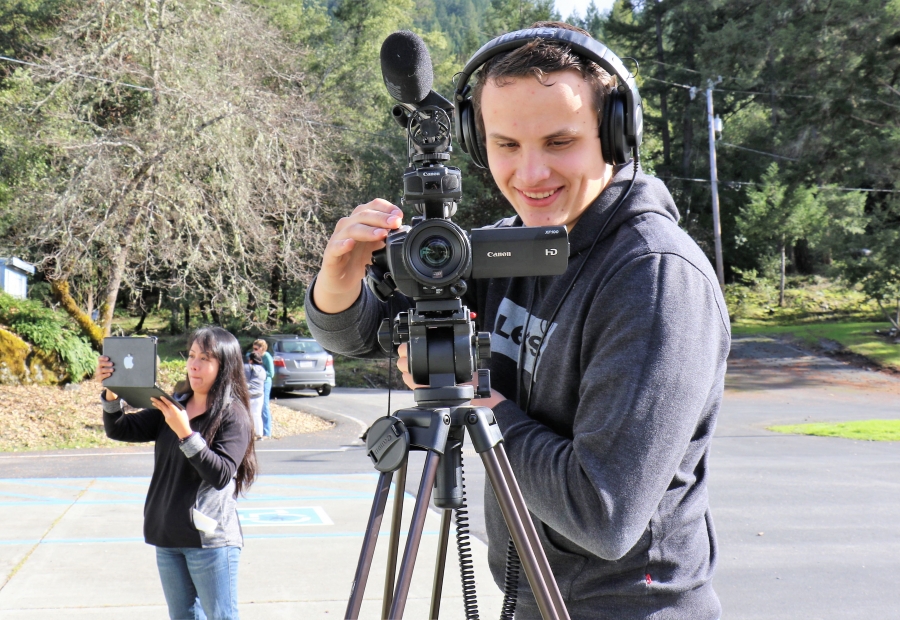
- Details
- By Native News Online Staff
WASHINGTON — Thirteen American Indian and Alaska Native organizations are sharing more than $600,000 in grant funding from the National Parks Service for cultural preservation projects.
The funding came via the National Parks Service’s Tribal Heritage Grant Program, a part of the agency’s Historic Preservation Fund, which is funded by federal oil leases on the Outer Continental Shelf and appropriated annually by Congress. The fund is intended to support a wide array of preservation projects without using taxpayer dollars.
“These grants provide critical support to help American Indian Tribes and Alaskan and Hawaiian Native communities connect people with their traditions and preserve their cultural heritage for future generations,” Margaret Everson, counselor to the secretary of the National Parks Service who is exercising the delegated authority as the agency’s director, said in a statement.
The 13 awards, which were announced last week, went to:
- Alaska-based Chickaloon Native Village for a Dene cultural sites project in the Matanuska watershed survey, $50,000
- The Knik Tribe in Alaska for the Dena’ina village survey, $50,000
- Koniag Inc. in Alaska for the Sitkinak Island Archaeological Survey (SIAS), $49,301
- California-based Pala Band of Mission Indians for strategic planning for Pala cultural resources, $49,378
- Resighini Rancheria in California for a project entitled “Telling Our Story: Resighini Rancheria’s Oral History Connections to the Klamath River,” $50,000
- The Coushatta Tribe of Louisiana, for the Coushatta Heritage Trail Guides and Living History Program, $50,000
- Michigan-based Match-E-Be-Nash-She-Wish Band of Pottawatomi Indians for establishing the tribe’s GIS Inventory, $41,571
- Burns Paiute Tribe of Oregon for the “Becoming the Burns Paiute: 20th Century Oral History” elder book project, $49,998
- The South Carolina-based Catawba Indian Nation for the tribe’s Cultural and Traditional Arts Initiative, $13,403
- The Ysleta del Sur Pueblo of Texas for comprehensive preservation planning, $50,000
- The Rappahannock Tribe of Virginia for the Chief Otho S. Nelson and Susie P. Nelson house rehabilitation project, $50,000
- The Quileute Tribe of the Quileute Reservation in Washington state for the tribe’s historic preservation plan for artifact curation, $49,272
- The Wisconsin-based Red Cliff Band of Lake Superior Chippewa Indians for the Gete Anishinaabeg Izhichigewin Community Archaeology Project, $50,000
According to the National Parks Service, the grants can be used for projects that “locate and identify cultural resources, preserve historic properties listed in the National Register of Historic Places, support comprehensive preservation planning, train tribal youth to serve as living history guides, preserve oral history and cultural traditions, provide training to build a historic preservation program, and support cultural and historic preservation interpretation and education.”
The agency expects to take applications for 2021 projects starting this fall, with about $500,000 in funding available.
More Stories Like This
Native News Weekly (August 25, 2024): D.C. BriefsUS Presidents in Their Own Words Concerning American Indians
Native News Weekly (December 7, 2025): D.C. Briefs
Why We Report: Chez Oxendine Shares His Story for Native News Online’s Year-End Campaign
New Amnesty International Report Details Torture, Overcrowding at Krome and ‘Alligator Alcatraz’
Help us defend tribal sovereignty.
At Native News Online, our mission is rooted in telling the stories that strengthen sovereignty and uplift Indigenous voices — not just at year’s end, but every single day.
Because of your generosity last year, we were able to keep our reporters on the ground in tribal communities, at national gatherings and in the halls of Congress — covering the issues that matter most to Indian Country: sovereignty, culture, education, health and economic opportunity.
That support sustained us through a tough year in 2025. Now, as we look to the year ahead, we need your help right now to ensure warrior journalism remains strong — reporting that defends tribal sovereignty, amplifies Native truth, and holds power accountable.
 The stakes couldn't be higher. Your support keeps Native voices heard, Native stories told and Native sovereignty defended.
The stakes couldn't be higher. Your support keeps Native voices heard, Native stories told and Native sovereignty defended.
Stand with Warrior Journalism today.
Levi Rickert (Potawatomi), Editor & Publisher

